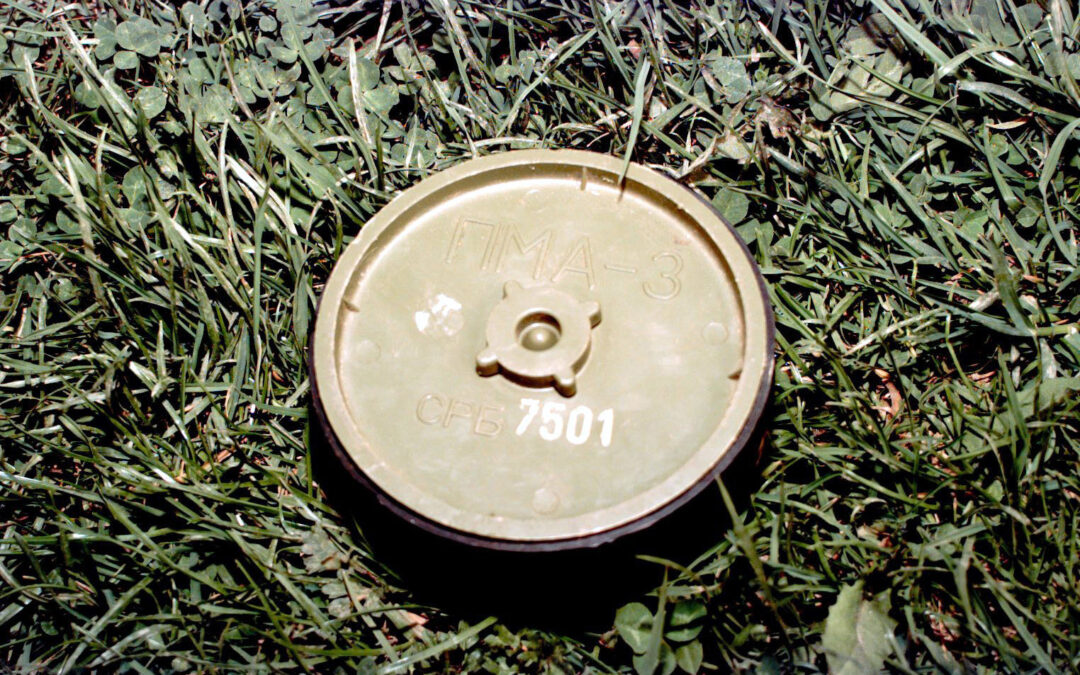Keep our news free from ads and paywalls by making a donation to support our work!

Notes from Poland is run by a small editorial team and is published by an independent, non-profit foundation that is funded through donations from our readers. We cannot do what we do without your support.
Polish President Andrzej Duda has signed into law a bill formally withdrawing the country from the Ottawa Treaty, which bans the use of anti-personnel landmines, citing deteriorating regional security and increasing threats from Russia.
The decision aligns Poland with several of its neighbours, including the three Baltic states – Lithuania, Latvia and Estonia – and Finland, which have also taken steps to exit the treaty in recent months.
Asked about the decision in late June, Duda described it as a “rational step” in light of the “deteriorating security situation” linked in part to Russia’s invasion of Ukraine.
Prezydent @AndrzejDuda podpisał ustawę o wypowiedzeniu tzw. konwencji ottawskiej, zabraniającej używania min przeciwpiechotnych. To decyzja o ogromnym znaczeniu. Wobec zagrożeń na wschodniej flance NATO musimy mieć wszystkie narzędzia do obrony naszych granic. Bezpieczeństwo…
— Władysław Kosiniak-Kamysz (@KosiniakKamysz) July 24, 2025
The bill was passed last week by the Senate, the upper house of Poland’s parliament, without any changes to the version approved in June by the more powerful lower house, the Sejm.
Defence minister Władysław Kosiniak-Kamysz has long described the bill as essential for national security and called Duda’s signing of it “a decision of great importance”.
“In view of the threats on NATO’s eastern flank, we must have all the tools necessary to defend our borders,” Kosiniak-Kamysz wrote in a post on X. “The security of Poland and Poles is paramount. The borders of the Republic of Poland must be inviolable.”
Poland has unveiled details of a €2.4bn plan to fortify its eastern border in preparation for – but also in hope of deterring – a potential attack
The plan includes minefields and anti-tank obstacles as well as satellite monitoring and anti-drone systems https://t.co/FUXTRwYpTc
— Notes from Poland 🇵🇱 (@notesfrompoland) May 27, 2024
The use of landmines is controversial because they are indiscriminate weapons and can remain in place long after a conflict has finished, meaning they often end up harming civilians.
Poland ratified the Ottawa Treaty in 2012 and, over the following three years, destroyed all of its anti-personnel mines – over one million in total.
However, in March this year, Poland and the three Baltic states announced plans to withdraw from the treaty, arguing that they need to “send a clear message: our countries are prepared and can use every necessary measure to defend our territory and freedom”.
The countries, however, reiterated their commitment to “international humanitarian law, including the protection of civilians during an armed conflict”, despite their decision.
In June, Finland’s parliament voted by a large margin to pull out of the treaty, while Ukrainian President Volodymyr Zelensky also signed a decree formalising his country’s withdrawal.
Currently, over 160 countries have agreed to the terms of the treaty; among those who have not are Russia, China, India and the United States. Russia continues to use anti-personnel mines in its war against Ukraine.
Poland, Lithuania, Latvia and Estonia have announced plans to withdraw from the Ottawa Treaty, which aims at eliminating the use of anti-personnel mines.
They say the threat of Russia means they have to consider "all measures to strengthen our defence" https://t.co/uknoNhARvO
— Notes from Poland 🇵🇱 (@notesfrompoland) March 18, 2025
Since Russia’s full-scale invasion of Ukraine in 2022, Poland has embarked on an unprecedented military spending spree. It has increased its defence budget to 4.7% of GDP this year, by far the highest relative level in NATO.
Last year, the Polish government unveiled plans for the “Eastern Shield”, a major fortification of Poland’s borders with Belarus and Russia that would potentially include the arming of minefields. The plans are being coordinated with the three Baltic states.

Notes from Poland is run by a small editorial team and published by an independent, non-profit foundation that is funded through donations from our readers. We cannot do what we do without your support.
Main image credit: PFC TRACEY L. HALL-LEAHY/Wikimedia Commons (under public domain)

Alicja Ptak is deputy editor-in-chief of Notes from Poland and a multimedia journalist. She has written for Clean Energy Wire and The Times, and she hosts her own podcast, The Warsaw Wire, on Poland’s economy and energy sector. She previously worked for Reuters.



















